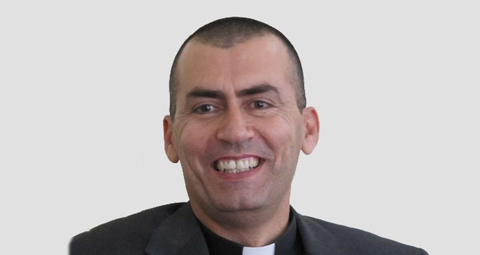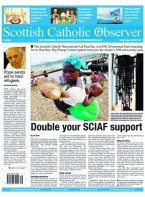BY Ian Dunn | June 12 | ![]() 0 COMMENTS
0 COMMENTS ![]() print
print

Christians flee Iraq violence
Some of the last Christians in northern Iraq are among half a million people fleeing the region after Islamic extremists continued to seize cities there.
The Al Queada offshoot Islamic State in Iraq and the Levant (ISIS) has made dramatic territorial gains in the past few days including taking the Iraq’s second largest city of Mosul. Bishop Amel Nona, Mosul’s Chaldean bishop, (above) said that he thought the city’s last remaining Christians had left now a city which until 2003 was home to 35,000 faithful.
The Christians are among 500,000 thought to have fled Mosul, whose overthrow on Tuesday has been followed by news of militant attacks on the Iraqi city of Tikrit, 95 miles north of the capital, Baghdad.
Describing reports of attacks to four churches and a monastery in Mosul, the archbishop, 46, said ‘all the Faithful have fled the city. I wonder if they will ever return there.’
The archbishop, who in the ensuing crisis sought sanctuary in Tal Kayf, a village two miles from Mosul, described how the local community were doing their best to provide for crowds of people flooding out of the city and into the surrounding Nineveh plains, where there are a number of ancient Christian villages.
“At 5am yesterday (Tuesday, June 10) morning we welcomed families on the run and we have tried to find accommodation in schools, classrooms and empty houses,” he said. “We have never seen anything like this—a large city such as Mosul attacked and in chaos.”
He said that in the 11 years following the 2003 US-led overthrow of Iraq’s President Saddam Hussein, Christians in Mosul had declined from 35,000 to 3000 and that ‘now there is probably no one left.’
The archbishop said that the attacks on Mosul began last Thursday, but were initially confined to the western part of the city.
“The army began bombing the affected areas but later in the night between Monday and Tuesday, suddenly the armed forces and the police left Mosul, leaving it to the mercy of the attackers,” he said, “I do not know yet who the group is behind these attacks. Some speak of ISIS, others think other groups are responsible. We have to wait until we have a better understanding of the situation. What we do know is that they are extremists, many people have seen them patrolling the streets.”
Some reports have described ISIS ambitions to create an Islamist caliphate spreading from northern Iraq across to north-west Syria. From ISIS-controlled regions in Syria have come reports of Christians being asked to pay the Islamic Jaziya tax and facing pressure to convert to Islam.
The UN Security Council has condemned the attacks in Mosul and Tikrit. In a statement, the UN Security Council said it ‘deplored in the strongest terms the recent events in the city of Mosul,’ and expressed concern for the hundreds of thousands who have since fled their homes. Secretary General Ban Ki-moon called on ‘the international community to unite in showing solidarity with Iraq as it confronts this serious security challenge.’











